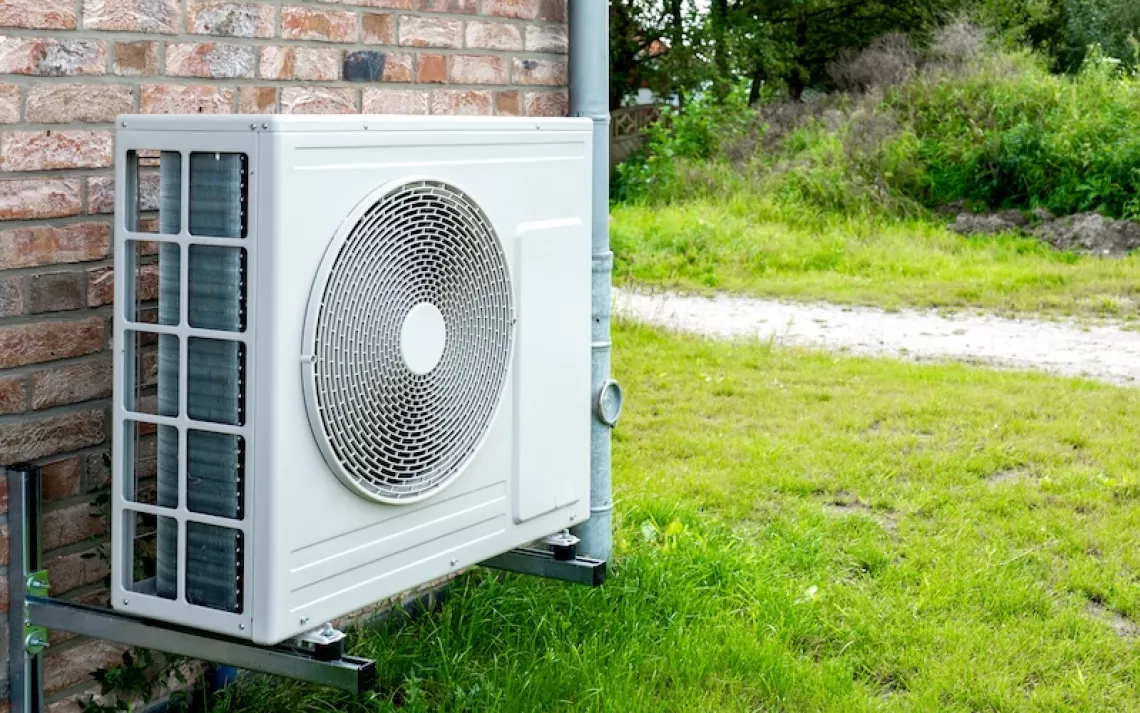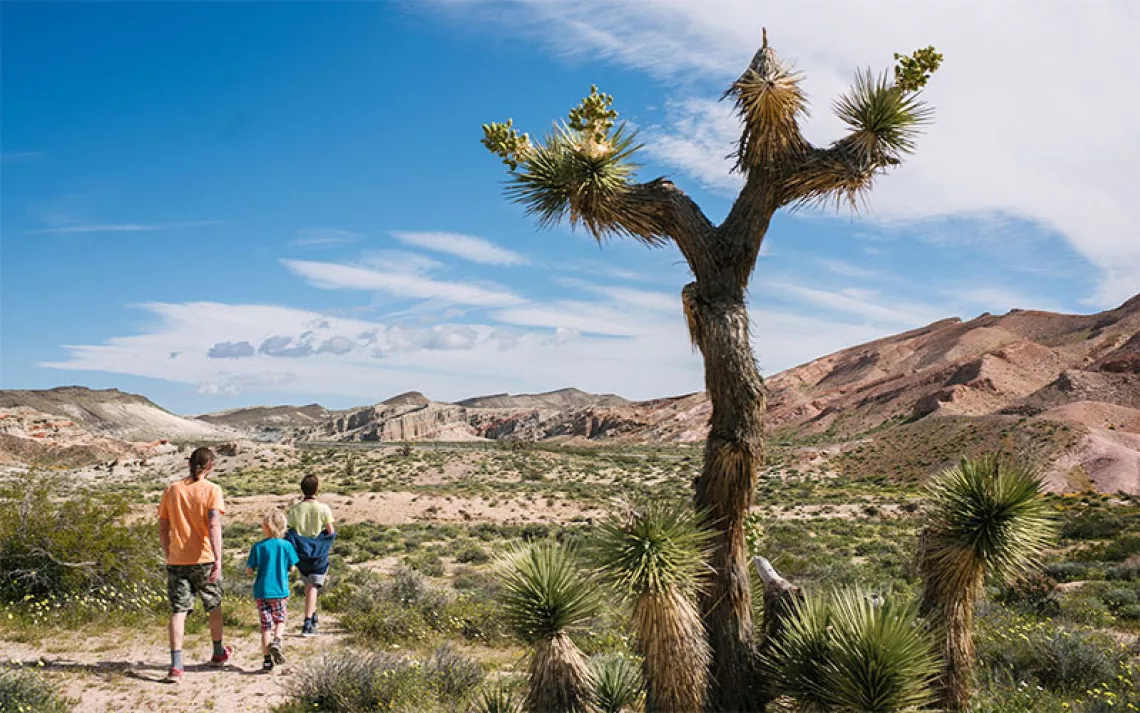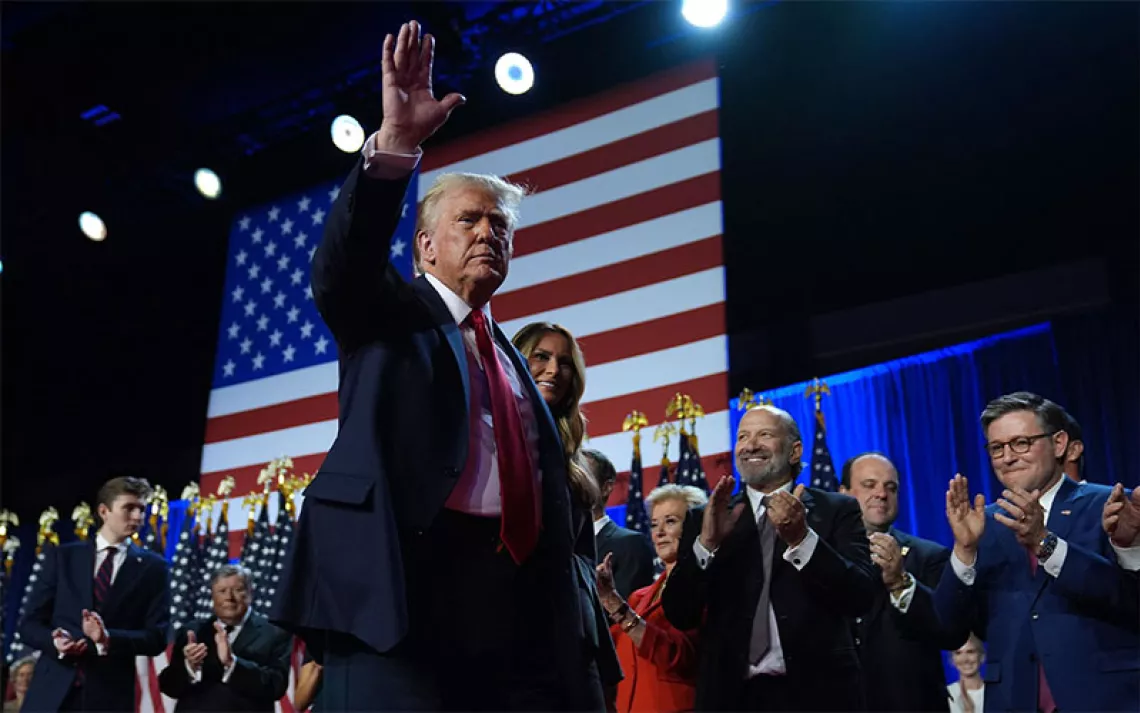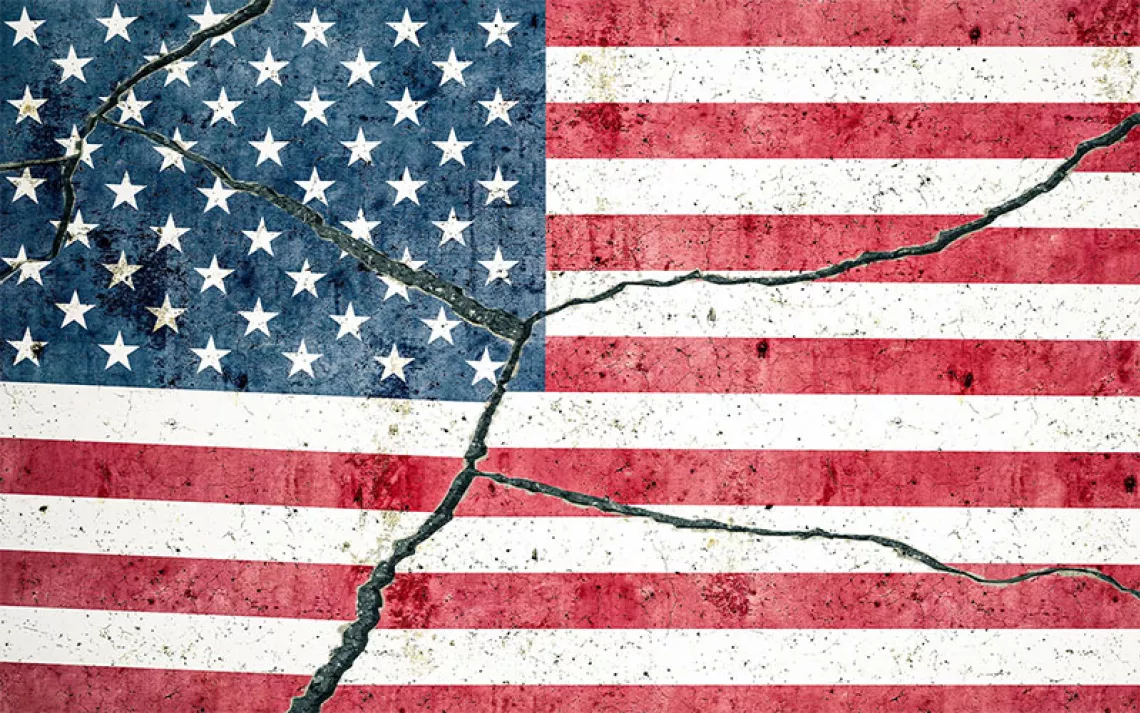White House Pretends to Care About the Environment
A selected annotation of Trump’s Monday speech

Donald Trump gives a speech on "America's environmental leadership," July 8, 2019. | Photo by Olivier Douliery/Abaca/Sipa USA (Sipa via AP Images)
President Trump Delivers Remarks on America’s Environmental Leadership. It sounds like an April Fool’s joke or the quip of a lazy headline writer at The Onion. And yet that’s exactly what happened on Monday in the East Room of the White House, as Trump and his cabinet performed a carefully choreographed—but poorly scripted—play of this administration’s imagined environmental accomplishments.
Reporters and other political observers spent much of Monday scratching their heads about why, exactly, the White House was going through the exercise. Axios speculated that it was a “Javanka Special”—an effort by Jared Kushner and Ivanka Trump to do some virtue-signaling toward liberals. Maybe it was an effort to appear “responsible” to suburban women. On Twitter, Vox writer David Roberts wondered, “Republicans don’t care; they know it’s just spin. Democrats know it’s bullshit. Who is the audience here? Is it just a bid to convince low-information voters?”
As the smarter folks at the White House know, poll after poll after poll reveal that large majorities of Americans want clean air and clean water; many people are concerned that the government isn’t doing enough to protect the environment. Some in Trumplandia understand that they need to at least mimic concern for Earth, so they put on a show testimonial about their alleged good works.
The first reviews of the performance were withering. The Washington Post reported that the speech was greeted by “howls of incredulity”; The New York Times said it “smacked of the surreal.” Surreal is what it feels like, being pulled through the looking glass of the Trump administration’s view of truth. In less than an hour, the president and members of his cabinet assembled a collection of outright lies, half-truths, calculated omissions, and blatant sophistry as part of their pantomime of an environmental record.
Full-time fact-checkers will probably have a field day with this speech. In the meantime, here’s a selected annotation of the event to help keep the truth straight.
The event got off to an ironic start when President Trump commented on the wild weather in Washington, DC.
THE PRESIDENT: Thank you. Thank you very much. Great to have you, and I hope you all had a truly wonderful Independence Day weekend. In spite of the heavy rain--and it was really heavy--we had a remarkable Salute to America on the National Mall.Call this an understatement. That very morning, the capital was hit by an extreme weather event, in which one month’s worth of rain fell in the course of a single hour. Part of the roof at one DC Metro station collapsed, causing an underground waterfall; cars were stranded; and the White House basement flooded. Still, somehow no one in the room thought to once say “climate change” or “global warming.” According to The Washington Post’s meteorology team, a rain event like that has a less than 1 percent chance of happening in any given year. Global warming is increasing the chances of such weather events, since a warmer atmosphere is able to hold more water vapor.
The president acknowledged his esteemed cabinet.
We have some incredibly talented people that know environment and what we’re doing probably better than any people on Earth.File under calculated omission and exaggeration. The head of the EPA, Andrew Wheeler, is a former coal lobbyist. Secretary of the Interior David Bernhardt is a former oil industry lawyer and lobbyist so plagued by ethical missteps that Outside magazine has a running “Bernhardt Scandal Tracker.” The energy secretary, Rick Perry, once called for the abolition of the agency he now heads. This is not exactly the kind of squad that you’d describe as knowing more about the environment than anyone on Earth; we’re a long way from when Stephen Chu, a Nobel Prize winner, once headed the Energy Department.
Trump then sought to tee up his environmental credentials.
From day one, my administration has made it a top priority to ensure that America has among the very cleanest air and cleanest water on the planet. We want the cleanest air. We want crystal-clean water, and that’s what we’re doing and that’s what we’re working on so hard.Well, that depends on what your definition of “top priority” is—and, for that matter, your definition of what “clean” is. According to this regularly updated tracker from The New York Times, the Trump administration has sought to roll back 83 environmental and public health rules since coming into office. Nearly a quarter of those—22—have to do with air quality or carbon emissions; seven are related to water quality.
The president trumpeted his record on protecting public lands.
From the very beginning, I have given them clear direction to focus on addressing environmental challenges so we can provide the highest quality of life to all Americans. In addition to clean air and clean water, that means being good stewards of our public lands.Say what? In December 2017, Trump moved, with undisguised glee, to dramatically downsize two national monuments established by his predecessors—Grand Staircase–Escalante and Bears Ears in Utah. He hasn’t yet appointed anyone to direct the National Park Service, even as his administration goes out of its way to grant the wishes of the oil, gas, coal, and uranium industries, according to a new report by the Center for Western Priorities. The National Parks Conservation Association says, “President Trump and the officials he has appointed have systematically undermined, degraded, and outright attacked the laws that protect our public lands.” You can find the NPCA’s running tally of the administration’s anti–public lands actions here.
Trump then floated a hoary straw man argument about how prosperity and sustainability are supposedly irreconcilable.
For years, politicians told Americans that a strong economy and a vibrant energy sector were incompatible with a healthy environment. In other words, one thing doesn’t go with the other. And that’s wrong because we’re proving the exact opposite.Really? Who said that? It wasn’t Trump’s predecessor, President Obama, the person who still drives Trump nuts. Here’s Obama at the September 2014 United Nations General Assembly, during a speech all about climate change: “These [clean energy] advances have helped create jobs, grow our economy, and drive our carbon pollution to its lowest levels in nearly two decades—proving that there does not have to be a conflict between a sound environment and strong economic growth.”
But, while we’re on the subject, let's just say there was in fact a conflict between environmental protection and economic growth. In that case, Trump would likely find himself (once again) on the wrong side of public opinion. According to a recent Gallup survey, 65 percent of Americans believe the environment should take precedence over the economy, the largest number to say that in nearly 20 years.
Next, Trump redoubled his assault on Obama.
The previous administration waged a relentless war on American energy. We can’t do that.This is just nonsense. In his first term, Obama—to the great frustration of environmentalists—promoted an “all of the above” energy policy that led to a rush of oil and gas drilling. The United States has been the world’s top gas producer since 2009, and reached a record level of crude oil production last year, as the Energy Information Administration reports here, largely on the momentum built up during the Obama years. While Obama was, in his way, a champion for action on climate change, he was no enemy of the fossil fuel industry.
After bashing Obama, Trump proceeded to take credit for his predecessors’ accomplishments.
Since 2000, our nation’s energy-related carbon emissions have declined more than any other country on Earth. Think of that.This is actually true—but it has nothing to do with Trump. The decline in US greenhouse gas emissions is due to a variety of factors. Market forces and technological leaps in energy efficiency and renewables have spurred part of the decline. Obama-era policies such as tighter auto emission rules then helped send additional signals to the market to reduce emissions. Don't forget the grassroots organizing work of groups like, ahem, the Sierra Club, that have helped to make coal-fired power unaffordable and obsolete. As for what’s happened on Trump’s watch? US greenhouse gas emissions spiked by 3.4 percent last year. For Trump to claim credit for a decline in greenhouse gas emissions is sort of like an arsonist boasting about the quick response time of the volunteer fire department.
For good measure, Trump then took a swing at the Green New Deal.
More than 100 Democrats in Congress now support the so-called Green New Deal. Their plan is estimated to cost our economy nearly $100 trillion--a number unthinkable; a number not affordable even in the best of times.Do you know why that number is “unthinkable”? Because it’s a complete fabrication. Trump here is leaning on a report from a conservative think tank, American Action Forum, which attempted to parse the impacts of the Green New Deal. All sorts of people started throwing around the claim that the Green New Deal could cost $93 trillion. There was just one problem—that figure appears nowhere in the think tank’s report. As Politico reported, “The figure is bogus.” Then the president took the phony number and rounded up by $7 trillion. Leave it to Donald Trump to exaggerate a falsehood.
After an interlude featuring a Trump fanboy from Florida, the president decided to turn his attention to the subject of forest fires.
I went to the fires in California and I said, “It’s also management.” It’s a lot of things happening, but it’s management. You can’t have dirty floors. You can’t have 20 years of leaves and fallen trees. After the first 17 months, they say the tree is like a piece of tinder. You have to be very careful. So you can’t have that. That’s why you have so many fires.Oh my God, raking the forest floors again?
For the sake of generosity, let’s chalk this one up to plain ignorance. Trump may like to think of himself as “an extremely stable genius,” but it’s obvious he couldn’t tell a fir from a pine (or, for that matter, a deer from a horse). First, the fact is that many forest ecosystems in the West are evolved to tolerate fire; some species, like the giant sequoia, require fire for their seeds to germinate. Second, global warming is exacerbating fires by lengthening fire season and making fires more intense—a finding confirmed by the Trump administration’s own National Climate Assessment.
As for “active forest management”—that’s basically code for increased logging on public lands. Trump is correct that if you “clean” and “manage” the forest, then there’s “not so much to burn.” That's because you’ve cut down all the trees.
After a while, Trump handed the mic to EPA administrator Andrew Wheeler, who took hand-waving to new heights.
ADMINISTRATOR WHEELER: From 1970 to 2018, US criteria air pollution fell 74 percent, while the economy grew by 275 percent. Under your administration, emissions of all the criteria air pollutants continue to decline.... For example, the lead and sulfur dioxide have dropped by double-digit percentages over the last two years.To paraphrase HuffPost White House correspondent Shirish Date, who grilled Wheeler earlier that morning during an on-the-record briefing: Are you serious? Trump and Wheeler are taking the environmental progress made under Presidents Nixon, Ford, Carter, Reagan, Bush I, Clinton, Bush II, and Obama and claiming it as their own. This White House is, truly, such a bunch of grifters.
Yes, American air is cleaner than it was when the Clean Air Act was passed—evidence that the law worked, not that Trump magically cleaned the air. Which he didn't, according to an Associated Press fact check that found that the number of “unhealthy days for ozone and fine particle pollution” in 35 major US cities was up by 22 percent from 2014. The AP fact check went on to note that, according to the Health Effects Institute, the United States has the eighth-cleanest air as measured by particulates, after Canada and some Scandinavian countries.
What about the declines in sulphur dioxide? It’s a consequence of long-standing Clean Air Act rules governing coal-fired power plants—exactly the kind of coal industry accountability that Trump has fought against.
Eventually, Interior Secretary David Bernhardt got some time at the podium.
SECRETARY BERNHARDT: Today, the geographic area of our nation’s wilderness system is actually larger than every state in the union except for Texas and Alaska. We are ensuring that future generations receive the benefit of an enduring wilderness system.It’s true that, in many ways, the American wilderness system is unmatched. But, as any management coach will tell you, leadership is about being consistent—and when it comes to our wild public lands, the Trump administration has been anything but consistent. Take the administration’s crusade to open up the Arctic National Wildlife Refuge to oil and gas exploration. It’s true that the area slated for drilling isn’t legally designated as a wilderness. Yet it’s undoubtedly one of the most wild places remaining in the United States, home to the greatest mammal land migration on Earth—that of the Porcupine caribou herd. If Trump and Bernhardt really cared about wildlife, they wouldn’t be pushing to get oil rigs into this last great wilderness.
After some over-the-top obeisance from Rick Perry, Trump took the mic once more for some closing thoughts.
THE PRESIDENT: We have only one America. We have only one planet.According to Sierra magazine fact-checking, the first statement is inaccurate; though the very idea may inflame the president, there are multiple Americas.
The second statement is unquestionably true. That fact makes the administration’s surreal play-acting on the environment such a waste of everyone’s time. We don’t have energy and attention to waste on White House performances, not when the fact is that, as even Trump knows, we’ve just got this single rock to live on.
 The Magazine of The Sierra Club
The Magazine of The Sierra Club



